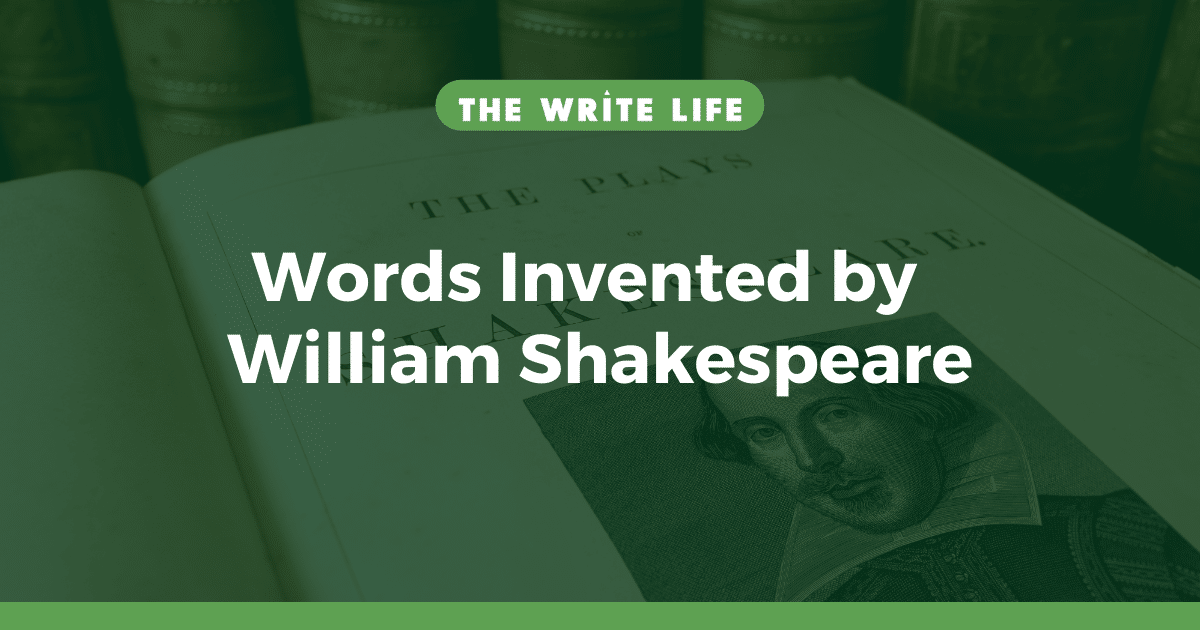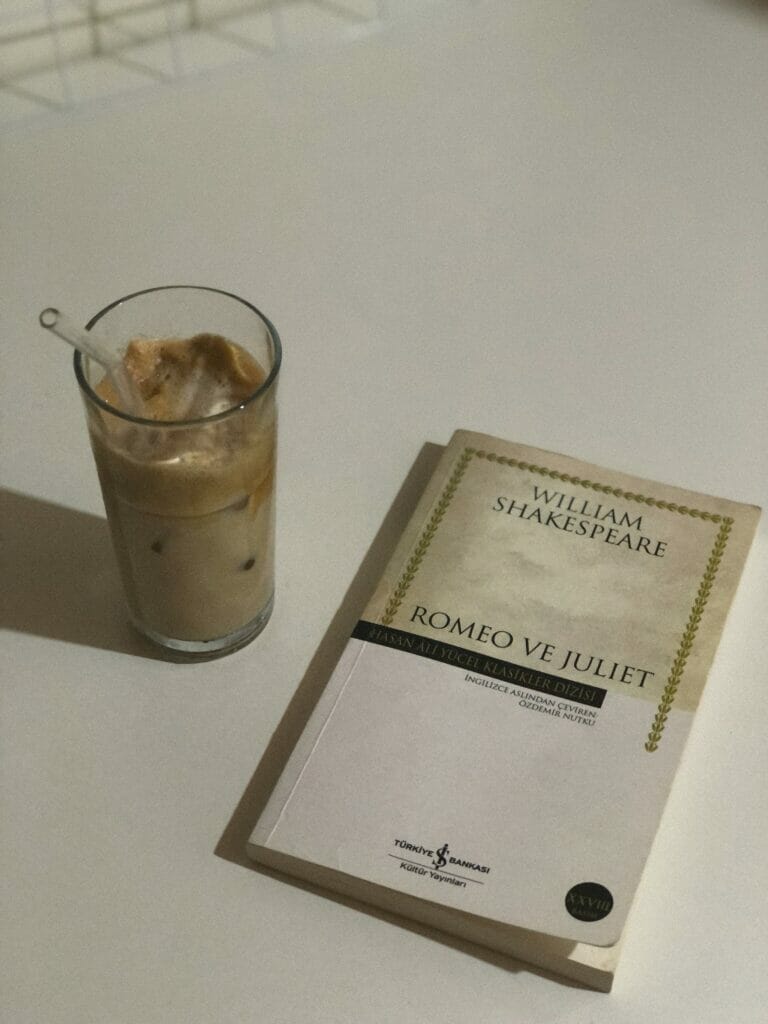
Did you know there are 1,700+ words invented by Shakespeare used in his plays and poems?
Shakespeare Birthplace Trust says he did this “often by combining words, changing nouns into verbs, adding prefixes or suffixes, and so on.”
Perhaps even more interesting is although these words and phrases were invented in the 16th century, many of them are still in use today!
Keep reading as we explore 50 of our favorite phrases and words invented by Shakespeare and share a bit of the story behind them where we can.

Words Invented by Shakespeare (with Some Origins)
Considered the greatest playwright in English history, William Shakespeare was a prolific writer and left an incredible mark on literature and western culture. Here are 25 words he is credited with inventing.
- Addiction—Exemplified in Othello, the word “addiction” is used to describe the state of being dedicated or devoted to a thing, unlike the modern usage of the word relating to bad habits like smoking
- Assassination—Found in Macbeth, the word “assassination” holds its same meaning by being a timed poisoning or utter destruction of something
- Bedroom—This word still holds the same meaning as when it was added to A Midsummer Night’s Dream
- Champion
- Cold-Blooded—When first used, this word was used metaphorically whereas now it’s used as a reference to serial killers and vampires
- Critic—Found in Love’s Labour Lost to mean someone who judges merit
- Dwindle
- Elbow
- Fashionable—Cited in Troilus and Cressida, this 11-letter word has stood the test of time in various industries today
- Generous
- Gloomy
- Hint
- Inaudible—Shakespeare added the negation of “in” before a word where it had never been before
- Lackluster
- Lonely
- Moonbeam
- Multitudinous—There are two meanings that Shakespeare derived from this word. One describes a body of water and the other is related to common people
- Obscene—Meaning “repulsive or disgusting,” this term was first found in Love’s Labour Lost
- Puking
- Perusal
- Pious
- Radiance
- Reliance
- Submerge
- Swagger—This was way before Justin Bieber! Shakespeare meant “swagger” to mean “strutting with a defiant air”
25 Common Phrases Shakespeare Invented
Here are a few phrases that first came William Shakespeare. See how many you recognize and use!
- All’s well that ends well
- Break the ice
- Eaten out of house and home
- Fair play
- Good riddance
- Heart of gold
- In a pickle
- Laughing stock
- Love is blind
- Wild-goose chase
- Vanish into thin air
- Naked truth
- A piece of work
- Fight fire with fire
- What’s done is done
- Wear your heart on your sleeve
- Seen better days
- Set your teeth on edge
- Too much of a good thing
- The world is my oyster
- A sorry sight
- Green-eyed monster
- Heart of hearts
- Dead as a doornail
- Bated breath
Some of these phrases may have existed in speech before Shakespeare documented them in his work. However, his usage caused them to enter popular culture and influence our word choices, even today.
Shakespeare’s Invented Words Showcases the Flexibility of the English Language
What’s so interesting about these terms being used today is that it demonstrates just how enduring our language is. Can you believe these 16th-century words and phrases still (basically) mean the same thing? It also shows us how flexible English can be. If we need a word, we can make one.
For example, as of February 2023, there were already 313 new entries and 130 new definitions added to the dictionary in 2023 such as:
- Digital nomad
- Rage farming
- Folx
- Petfluencer
Language is how we express our human experience, and the words and phrases we use will endure or flex based on what we need in any given moment.
While many of the words invented by Shakespeare are more heavily used in England and the United Kingdom, English speakers around the world will be familiar with some, if not most, of our curated list!

